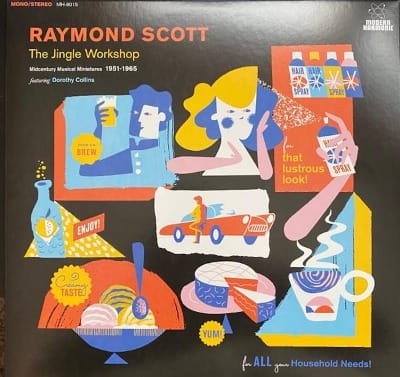The audience comes last | Adventures... #65
Lessons from the talent agents, dealing with feedback, and three types of writing.

Hello. This is the Adventures… newsletter: a trip into finding your inner groove, creating work that sustains, and making more sense of the world. It’s put together by me, Howard. Not a subscriber yet? Join now
‘You’re too nice for this game, H’.
Towards the end of my final week as a talent agent, I found myself in a nondescript London pub with a few colleagues. As the latest round of G&Ts arrived, one of the group pulled me aside and uttered this now immortal phrase.
I knew he was right. I also knew it was a compliment - and the polar opposite.
It’s unlikely anyone ever said these words to Michael Ovitz, co-founder of talent agency behemoth CAA. Renowned for his buccaneering approach (to put it mildly), Ovitz is both revered and reviled across Hollywood.
A recent group chat on alternative revenue models reminded me of an anecdote from Ovitz’s memoir. As I tend to do, I riffed up a summary of the story and published it on my blog and LinkedIn.
The big surprise wasn’t the traction it gained, but the antagonism in some of the responses: people were irate; dismissive; calling me out for being disingenuous. Yikes.
A couple of days later - more unsolicited negative feedback. This time on an another piece of my writing.
Ugh. I felt myself sag. Was I too nice for this game, too?!
I wanted to down tools. Go on strike. But unlike the Hollywood writers, my strike was internal.
Turns out I wasn’t the only one.
Over the past few weeks, a bunch of people have told me about their challenges with writing. One has 1300(!) drafts, and published… zero. Another just shared their first ever LinkedIn post after weeks of trepidation. A third who is in a career shift knows writing is valuable, but is wrangling horribly with what to write about… and how.
All of them have been on strike. But why?
Two three types of writing
A lot of the advice on ‘internet writing’ (whatever that is…?) seems to boil down to the claim there are two types of writing.
One is where you’re building an audience, seeking to scale. You’re not selling anything upfront (except attention, of course). This usually equates to high volume, pumping it out via automations, playbooks and all the rest (e.g. Twitter, influencer culture, etc.).
The other is to get a market of people to trust you as an authority or thought leader, so you can eventually can make a sale. This one is often anchored in ‘essays’ (that word makes me shudder). It requires precision, intellect, and supreme self-confidence that you’re an expert.
This two-prong pitch is valid, except it;
a) pushes everyone to look and sound the same,
b) starches away all the fun and weird stuff,
c) strips away nuance, leaving a binary choice (as is so much of life today, it seems)
Yay.
Or to put it another way, these two types of writing are so often about extrinsic goals. And this can make some of us want to opt out - to go on strike.
But how about intrinsic goals? Where writing stuff may indeed serve your work or business in some way, but the roots are elsewhere?
Rick Rubin’s book The Creative Act (I strongly recommend the audio version) has a bunch of great ideas on this theme. One of them is about the audience coming last.
Here are a couple of others.
You as four people
My buddy Steve Bryant shared this delightful morsel recently (source unknown):
Nut, Moron, Stylist, Critic. I love this.
Rather than trying to be a thought leader or build an audience - we can simply be a nut and a moron. All of us - if we allow ourselves - can be truly excellent in these roles. Ask a stupid question, observe that weird thing. Tell a friend. (Tip: record and transcribe your chat with them and bingo: first draft).
Many of us get stuck when trying to become people 3 and 4 - especially when we let OTHER PEOPLE become them instead.
Grow bag
The other thing people seem to get caught up on is GROWTH. Thou must grow. Thy numbers must go up. Or else.
I’m not so sure.
Here’s a fun fact - this newsletter sometimes has negative growth. Some months I get more unsubscribes than subscribes. The numbers go down. Cordon Bleu, Rodney.
I used to care about this. Then I realised the negative growth can be good. If you unsubscribe, this is not for you. I don’t want to waste your time.
And when it comes to feedback - it’s rarely helpful for me to get it from people who the work is not intended for. It doesn’t help me do better stuff. In fact, it makes me more likely to go on strike.
I believe the sparsely populated room of those who see what you see is far better than playing a packed house of… somebodies.
Which brings us back to the talent agent.
Party of Five
There are - in very basic terms - two types of live music gig: soft ticket and hard ticket. Soft tickets are things like nightclubs, corporate gigs, festivals. The audience aren’t coming just to see you. They come for the venue, booze, attractive people, etc. Soft tickets are soft and snuggly, usually cushioned by cash. You’re getting paid, sometimes pretty well. And you’re insulated - i.e. you always have someone else to blame if it doesn’t go well.
Hard tickets are the opposite. They’re raw, exposed, vulnerable, highwire acts. But long-term, you can win big. And they’re unshakeable proof of work. Your fans, coming to see YOU.
But if you’re just starting out, you’re unlikely to get much juice from either source.
Ground zero for ‘baby bands’ (i.e. those starting out) is therefore being a support act on another artist’s hard ticket gig. You get to play before a bigger act, and the risk is contained. But there’s almost zero money, and sometimes there are only five people there when you start playing just after doors open.
Do this a bunch, and you can get really disheartened. All that work, for five people.
But here’s the thing: you often don’t know who’s in the room. The band only needs one person - a lawyer, manager, A&R - for the game to change instantly.
Today, you don’t even need a ‘business’ person - you may just need one person who’ll tell the others. Derek Sivers’ riff on how to start a movement sums this up wonderfully.
This isn’t just applicable to bands. The legendary DJ Ricardo Villalobos started out in Ibiza by playing his uniquely weird stuff to just a handful of people. He didn’t care one bit.
In both cases, the audience comes last.
This ain’t no hits business
The same is likely true for your line of work.
For many of us, we don’t need chase 5 million or even 5000 people. We probably only need five. You may only need one.
And in a world of ‘content’ being driven by A.I, the very best way to do this is by channeling your inner Nut, your inner Moron.
When I think about it, the writing that’s actually been successful - both for me personally and for my ‘career’ - has been the weird stuff. The stuff that came from the Nut & the Moron:
- One of my closest sparring partners found me through one of these newsletters I send each month.
- The person who I’ve done 90%+ of my projects with in the last 2 years… I met him through his wife, who found me… through a short riffy blog post I wrote.
- A new creative collaborator came from me posting something weird I probably shouldn’t have… until I realised that yes, of course I should.
None of my posts have been ‘hits’. That’s not the point. Chasing a hit makes us conform, become derivative, interchangeable. Henrik Karlsson has an amazing post on this (meta) topic.
Rick Rubin has no idea which song is going to be a hit (or even what a ‘hit’ really is). Seth Godin - author of 8000 blog posts and 20+ books - has never gone viral and won the internet.
For all of them, the audience comes last.
Maybe becoming decent at writing (amongst other things) comes down to just three elements.
Be a nut.
Be a moron.
But most importantly - be nice. Especially to yourself.
Thanks for reading. And do let me know what's piquing your interest right now - just hit reply.
Howard
Bits
- Today’s A.I. is a Nokia 3310. And the iPhones are coming
- There are no secrets left: DHH (and Jeff Bezos) on why it’s all about confidence.
- The most beautiful picture in the world: according to A.I.
- A double header from Matt Klein: Pandemic Learning Loss and a meta view of 2024 trends
Boombox
Speaking of Rick Rubin, I’ve also been going in deep on his new(ish) podcast, Tetragrammaton. As well as the svelte edit and interesting guests, the adverts are all created in a classic 1950s radio style. It’s a nice flip on the format, and they’re surprisingly listenable.

So, in keeping with the theme, this month’s boombox is a selection of Midcentury Musical Miniatures from Raymond Scott’s Jingle Workshop.
Meanwhile
3 things I’ve been doing of late.
- Refining: Wavetable v1.5. A lot of entrepreneurship is reducing and refining, again and again and again. It’s not glamorous. But I think I might have just unlocked it.
- Cooking: Speaking of reducing and refining, my Instant Pot is my go-to piece of kitchen gear. I’m now knocking up 5+ tasty meals a week with it (with some help from ChatGPT).
- Walking: Around Manhattan. I loved doing this in the halcyon pre-pandemic days. It’s great to be back at it - many fresh ideas have emerged.
Just one more thing...
Want more Howard in your life? You do? Well, when you’re ready, I can help you:
- Bring out your inside genius and become a more accomplished teacher, presenter and speaker
- Develop your groove with A.I. tools and workflows
- Create vibrant content and experiences that people actually care about